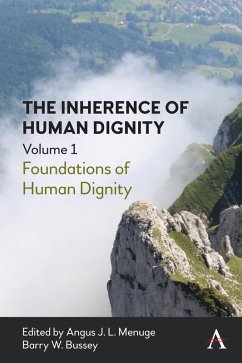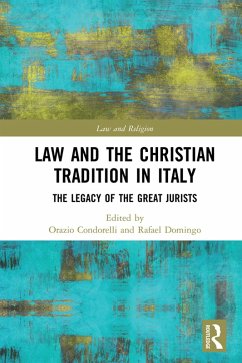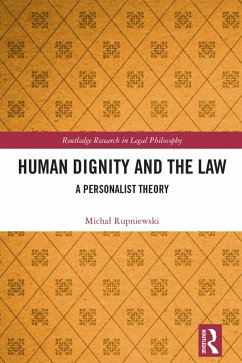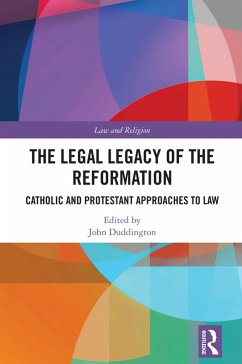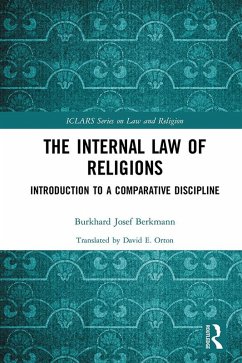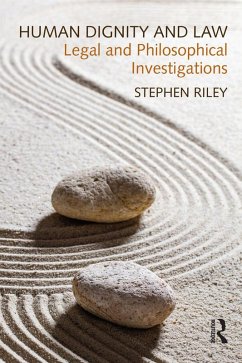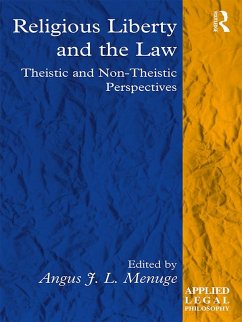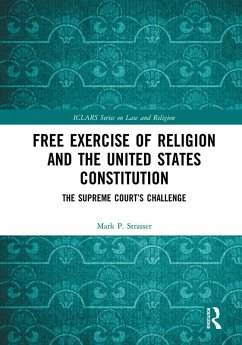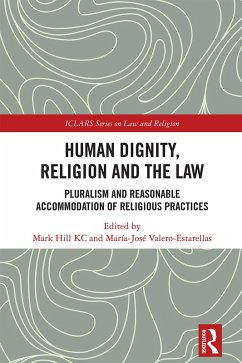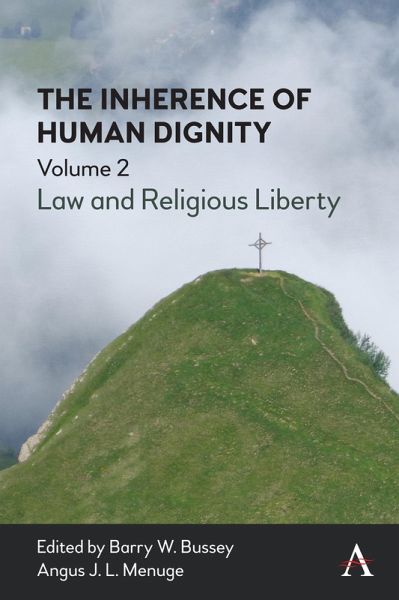
The Inherence of Human Dignity (eBook, ePUB)
Law and Religious Liberty, Volume 2
Redaktion: Bussey, Barry W.; Menuge, Angus J. L.
Versandkostenfrei!
Sofort per Download lieferbar
29,95 €
inkl. MwSt.
Weitere Ausgaben:

PAYBACK Punkte
15 °P sammeln!
For the 2019 IVR World Congress of Philosophy of Law meeting in Lucerne, Switzerland, Drs. Barry W. Bussey and Angus J. L. Menuge organized a special workshop on the inherence of human dignity, featuring participation from philosophers, legal scholars, and legal practitioners from around the world. Many of the chapters in these volumes are the result of that invigorating two-day workshop. In addition, several new papers were solicited to round out each volume so that it offers broad coverage of the issues it addresses.The second volume, Law and Religious Liberty, explores the value of dignity ...
For the 2019 IVR World Congress of Philosophy of Law meeting in Lucerne, Switzerland, Drs. Barry W. Bussey and Angus J. L. Menuge organized a special workshop on the inherence of human dignity, featuring participation from philosophers, legal scholars, and legal practitioners from around the world. Many of the chapters in these volumes are the result of that invigorating two-day workshop. In addition, several new papers were solicited to round out each volume so that it offers broad coverage of the issues it addresses.
The second volume, Law and Religious Liberty, explores the value of dignity as a foundation for law. It addresses the following questions. What context is necessary to create an understanding of the need to protect human dignity? Is dignity a useful legal concept or not? If it is, what difference does it make if dignity is recognized in a state's constitution? Can we discover dignity by its de facto role in legal decisions? Should dignity be extended to groups? What are the practical, legal implications of various understandings of human dignity for international law, religious freedom cases and the permissibility of legal determination of religious doctrine?
The second volume, Law and Religious Liberty, explores the value of dignity as a foundation for law. It addresses the following questions. What context is necessary to create an understanding of the need to protect human dignity? Is dignity a useful legal concept or not? If it is, what difference does it make if dignity is recognized in a state's constitution? Can we discover dignity by its de facto role in legal decisions? Should dignity be extended to groups? What are the practical, legal implications of various understandings of human dignity for international law, religious freedom cases and the permissibility of legal determination of religious doctrine?
Dieser Download kann aus rechtlichen Gründen nur mit Rechnungsadresse in A, D ausgeliefert werden.




